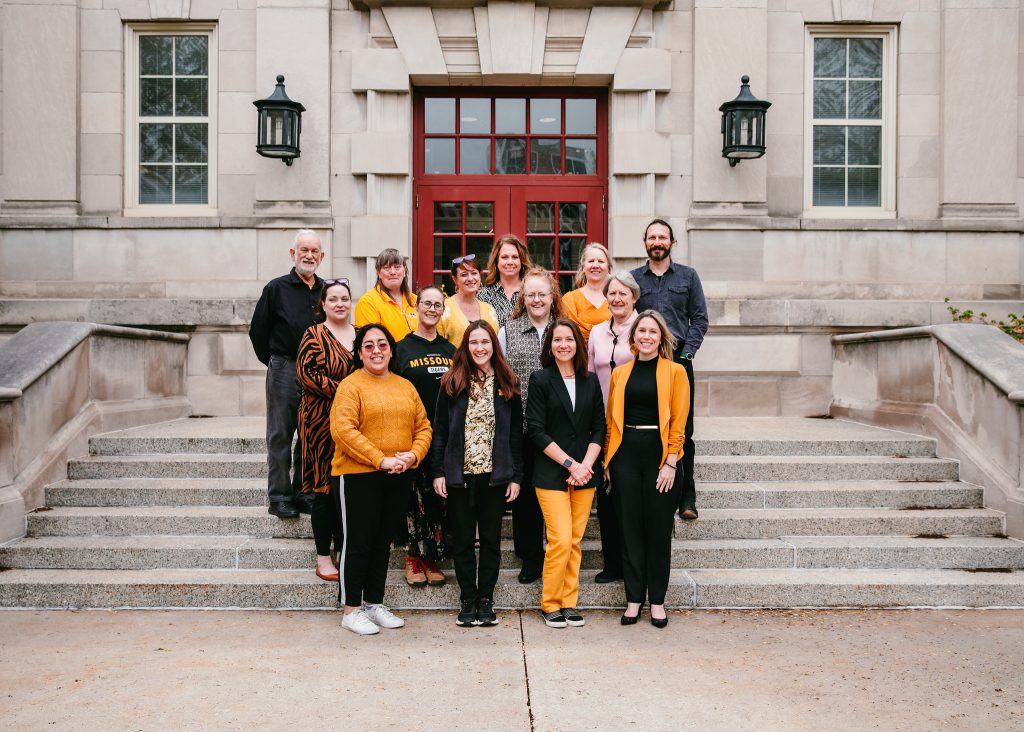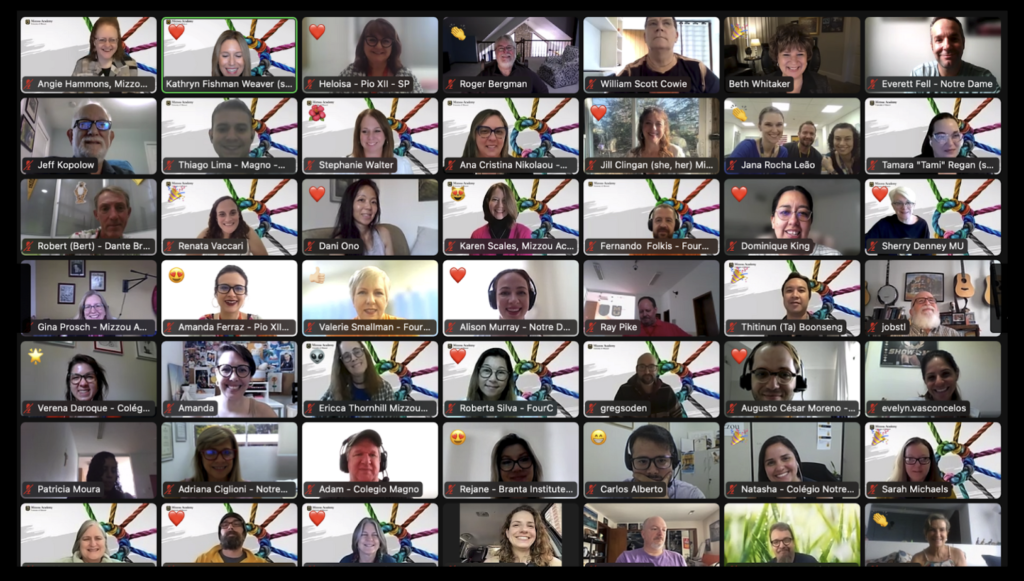Mizzou Academy’s Proactive Approach to Generative AI in Education
Posted in: News
Earlier this semester, Mizzou Academy released an open-access resource for students, families, and partner educators to learn more about AI tools and how to use them responsibly. Working closely with faculty and staff, instructional designer Maegan Cooper created an interactive AI module housed in the school’s open-access Learning Library.
Try the Interactive ModuleThis resource has already gained considerable attention and appreciation across the Mizzou higher education and K-12 landscapes. This proactive and pro-learning response to emerging technologies aligns with the lab school’s core values of inclusion and access.
Teaching in the Age of AI
Two years ago this month (November), ChatGPT was released for public use. Mizzou Academy took immediate notice. This article recounts some of the key learning moments in Mizzou Academy’s professional learning and development around teaching in the age of AI.
The first key moment was in April 2023 when Director of Teaching and Learning Stephanie Walter gathered a group of Mizzou Academy faculty and staff to process the impact of generative AI in the classroom. They recognized that the release of ChatGPT had already significantly altered the educational landscape. Students could write entire essays in seconds using untraceable sources. Teachers were uncomfortable with the speed and amount of generative AI submissions coming their way.
The Mizzou Academy team wondered about the logistics of recognizing and addressing this new type of plagiarism in a school that serves 7,000 students in over 60 countries. Some worried that students would lose their critical thinking and creative abilities. Others lamented the possibility of a future where students avoid making mistakes and learning from them, opting instead for a dispassionate, computer-generated outcome that replaces their unique voices.

Still, the group found hope.
Executive Director Kathryn Fishman-Weaver shared, “Mizzou Academy was uniquely suited to respond thoughtfully to the broad release of new AI tools. Innovation is one of our core values.” She encouraged the team to focus on their commitment to lifelong learning by considering this guiding question: How can we teach students to use this tool in ways that support (and not undermine) their learning?
Math Division Chair Brennan Ransdell pointed out that the emergence of AI was similar to the advent of the calculator. The calculator negated the need for mental math, but it also allowed students to explore more complex problems. “Yes, a calculator performs the mathematical operations quickly, but the point of a math problem is to understand the underlying concepts and methods.” Said Ransdell, “You need to understand the entire problem-solving process and how to apply the calculator to the problem you want to solve.” Similarly, while AI can quickly generate text or solve problems, students still need to understand the underlying concepts and critical thinking processes.
With Walter’s guidance, the Mizzou Academy team focused on possibilities. What if they used AI to redesign lessons to promote critical thinking and elicit a more personal voice? What would it look like if they taught students how to use AI to help them plan, organize, and study?
The Mizzou Academy team agreed that their primary role was not to police students. Instead, they would commit to addressing plagiarism and setting high standards for academic integrity while exploring this essential question: How might we support students in using generative AI as a tool rather than a shortcut?
AI Action Plan

From there, the group got to work. Some worked on communication with partners and families to share updates about generative AI and the school’s approach. Others broadened the school’s academic policy to address instances of copying straight from an AI-generated tool. Many began taking online courses offered by Mizzou and enrolling in professional development workshops, focusing on what AI can do and how educators can develop lessons and assignments that promote individual expression.
Dr. Kathryn Fishman-Weaver and a workgroup of teacher leaders created a thoughtful newsletter that encouraged process teaching, authenticity, academic integrity, and critical thinking. These continue to be cornerstones of Mizzou Academy’s approach to AI.
One year after the release of ChatGPT, Stephanie Walter led a conference session titled “Your Voice Matters: Academic Integrity and AI.” This session was well-attended by Mizzou Academy school partners. The group explored hopes and fears, high expectations, and teaching strategies. By the end of the conference, they had moved the needle a little further away from “AI will be our doom!” to “I see great possibilities.”

Walter acknowledged this mix of emotions. “Any time a new technological advancement enters the scene, we will experience benefits and costs. It was easy to see the potential costs of using generative AI, and we were all concerned. Our team knew we had to become comfortable in that tension of pros and cons to equip our students to grow.”
Several team members, including Maegan Cooper, Ericca Thornhill, and Stephanie Walter, formed a cohort and worked with Mizzou’s Teaching for Learning Center to take Auburn University’s Teaching with AI online course, dedicated to exploring AI tools and designing sound curricula. They built on what they learned to redesign course assignments, experiment with AI tools, and brainstorm innovative approaches to integrating AI into education.
Mizzou Academy continues to work toward expanding innovation and access. Next month, the team is leading an international conference for educators and school leaders on teaching the United Nations SDGs in the Age of AI.
Mizzou Academy believes that educators have a responsibility to stay well-informed and to teach our students about the responsible, intelligent, and practical use of AI tools. Cooper is continuing to build out the AI resource module. She says, “We are pondering the delicate balance between embracing new technology and preserving critical thinking, intellectual curiosity, and human connection. “We will continue considering what course design, student support, and teacher leadership look like in our increasingly digital context.”